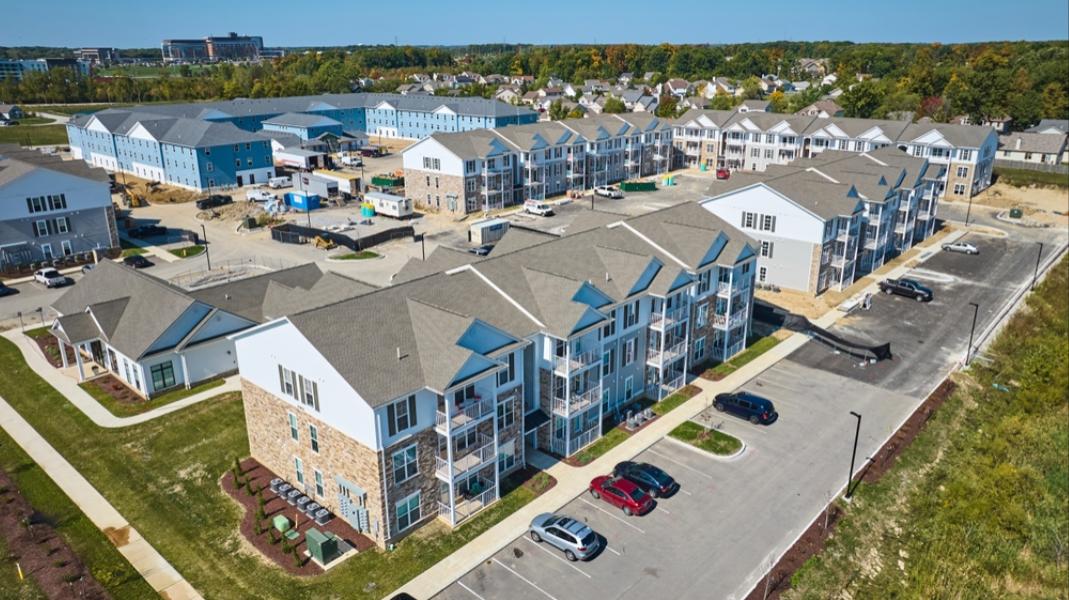Finding affordable senior apartments that fit within a limited budget can be challenging, but there are numerous resources and programs available to help low-income seniors access budget-friendly housing. Many government subsidies and nonprofit initiatives focus specifically on affordable housing for seniors, making it possible to find comfortable, low-cost living arrangements.
Some apartment complexes cater exclusively to low-income seniors, allowing residents to maintain their own private living space at an affordable rate. Typically, rent is capped at around 30% of the resident’s adjusted gross income (AGI), meaning if your AGI is $1,000 per month, your rent should not exceed $300. Let’s explore several strategies to secure senior apartments under $249 per month.
Senior Living Communities Are Available for $249/Month in These Areas
Some senior living communities and housing projects are specifically designed for low-income seniors, making affordable rent a primary goal. Senior communities that receive funding from programs like Section 202 or Low-Income Housing Tax Credits (LIHTC) often set rent based on a percentage of income, sometimes making it feasible to find units priced at or below $249 per month.
Several online resources provide lists of budget-friendly communities for seniors across the U.S. For example, SeniorLiving.org offers a guide to low-cost retirement living. These communities can be located in smaller cities or suburban areas where living costs are lower, helping you find affordable options.
Search for Affordable Senior Living Apartments Near You
To locate affordable senior apartments near you, consider using online search platforms that focus on low-income housing. Websites like Apartments.com and Renterverse feature specialized search tools for senior and low-income housing. Another helpful source is Apartments.com’s guide on finding low-income senior housing, offering tips on how to access subsidized apartments.
Additionally, visiting local housing authorities or checking out HUD’s affordable housing listings can connect you to low-cost senior apartments. Government sites and databases often provide updated information on available units, eligibility requirements, and nearby amenities, making it easier to locate a suitable and affordable place.
Budget-Friendly Apartments for Seniors: Available Now for Under $299/Month Near You
For seniors on a tight budget, apartments priced under $299 per month are possible through several assistance programs. Subsidized housing initiatives like Section 8 vouchers can make it possible to find a place within this price range. Section 8 vouchers are specifically designed to cover a portion of rent based on income, enabling many seniors to pay as little as $249 or even less for rent.
For more details on finding low-income housing, see Forbes’ guide on affordable housing options for seniors. This guide outlines government programs and how they work, as well as additional tips for applying to subsidized housing complexes.
Senior Living Apartments For Less: Explore Deals With These Top Searches
If you’re searching for low-cost senior living apartments, knowing which keywords to use can make your search more productive. Here are some top searches and terms that yield great results for affordable senior housing:
- Senior Apartments Under $300
- Low-Income Senior Apartments
- Subsidized Senior Housing Near Me
- 55+ Apartments on a Budget
- Affordable Retirement Communities
Using these keywords on platforms like U.S. News & World Report can reveal affordable senior apartments in your area, tailored to meet specific budget constraints.
3 Little-Known Senior Options (#1 is Extremely Cheap)
Here are three lesser-known but effective ways to secure affordable senior housing for $249 or less per month:
- Section 202 Supportive Housing for the Elderly: Section 202 is a HUD-funded program designed specifically for low-income seniors. This program helps cover rental costs in designated senior housing communities, offering safe, affordable apartments. Eligible seniors pay approximately 30% of their income toward rent, making it a feasible choice for those with limited funds.
- Public Housing Authorities (PHAs): Many cities and states have Public Housing Authorities that manage affordable housing for seniors. PHAs can provide apartments or assistance with finding privately owned units that accept rental subsidies, keeping rent under $249 for qualifying residents.
- Nonprofit Housing Options: Some nonprofits specialize in affordable senior housing, such as local community organizations and charities that receive funding to support housing for seniors. These organizations offer low-cost apartments specifically tailored to low-income seniors and often have on-site services for residents.
For more information on these options, check out SeniorLiving.org’s affordable housing guide.
How Rent Is Determined in Subsidized Senior Apartments
In subsidized housing for seniors, rent is usually calculated based on a percentage of the resident’s adjusted gross income (AGI). Most commonly, seniors pay around 30% of their AGI, ensuring that rent remains affordable relative to their income. For example, if a senior’s AGI is $1,000 per month, the rent should be capped at about $300. With additional subsidies or assistance, some seniors may even qualify for rents under $249 per month.
Rent calculations take into account income from all sources, including Social Security, pensions, and other retirement funds. Knowing how your income is evaluated can help you determine what housing options you’re eligible for and the rent you can expect.
Tips for Applying to Low-Income Senior Apartments
Applying to low-income senior apartments can be competitive, as demand is high. Here are some steps to improve your chances:
- Start Early: Affordable senior apartments often have long waiting lists, so applying early increases your chances of securing a spot sooner.
- Prepare Financial Documents: Have proof of income, tax returns, and identification documents ready to expedite the application process.
- Check Multiple Options: Apply to several housing programs, such as Section 8, Section 202, and local Public Housing Authorities, to improve your chances of finding a place.
- Stay Updated on Open Waitlists: Regularly check for updates from housing authorities and nonprofits, as they periodically open waitlists for new applicants.
Finding the Right Affordable Senior Apartment for Your Needs
Finding an affordable senior apartment that fits your needs and budget is possible with the right resources and a proactive approach. Programs like Section 202 and Section 8, along with nonprofit organizations, make it possible for low-income seniors to live comfortably without excessive rent burdens. Start by exploring local housing options, gathering your documentation, and applying to various programs to secure affordable senior housing under $249 per month.
If You Already Own a Home Though, You Can Still Benefit From Some Ideas To Get Your Payment Down as Low as Possible With a Reverse Mortgage.
Understanding Reverse Mortgages
A reverse mortgage is a special type of loan available to homeowners who are 62 years or older, allowing them to convert part of their home equity into cash. Unlike traditional mortgages where you make payments to the lender, with a reverse mortgage, the lender pays you. The most common reverse mortgage is the Home Equity Conversion Mortgage (HECM), which is insured by the Federal Housing Administration (FHA).
Essentially, a reverse mortgage allows you to remain in your home and access a portion of its equity, which you can receive as a lump sum, monthly income, or line of credit. The loan is repaid when you sell the house, move out, or pass away. This financial tool can significantly lower your monthly expenses as it eliminates the need for monthly mortgage payments, helping you manage your money better during retirement.
Benefits of a Reverse Mortgage
Reverse mortgages offer numerous benefits that can enhance your quality of life during retirement:
- Eliminate Mortgage Payments: Perhaps the most significant advantage is the elimination of monthly mortgage payments. This can free up cash flow significantly, allowing more money for daily living expenses and other needs.
- Retain Home Ownership: Unlike selling your home, a reverse mortgage allows you to retain ownership and stay in your home, provided you continue to pay property taxes, insurance, and maintenance costs.
- Access Home Equity: It enables you to tap into home equity without selling the property, providing financial resources to cover medical expenses, home improvements, and more.
- Flexible Disbursement Options: Receive the funds in a manner that suits your needs: lump sum, monthly payments, or as a line of credit.
For more on the pros and cons, you can explore further at Reverse mortgages: Exploring the pros and cons for seniors.
Qualifying for a Reverse Mortgage
To qualify for a reverse mortgage, seniors must meet the following criteria:
- Age Requirement: You must be at least 62 years old.
- Primary Residence: The home must be your principal place of residence.
- Home Equity: You need to have enough home equity—generally at least 50% of the home's value.
- Financial Assessment: Lenders will assess your ability to pay for ongoing property charges, such as taxes and insurance.
More information can be found in resources like Reverse Mortgage for Seniors - Washington Trust.
Potential Drawbacks and Considerations
While reverse mortgages offer notable benefits, there are some drawbacks to be aware of:
- Accumulating Interest: Since you are not making monthly payments, interest on a reverse mortgage accumulates over time, which can significantly reduce the equity left in your home for heirs.
- Costs and Fees: Reverse mortgages can come with high upfront costs, including origination fees, closing costs, and mortgage insurance.
- Impact on Benefits: While the cash from a reverse mortgage is not taxed, it can impact eligibility for needs-based public benefits like Medicaid.
- Mortgage Requirements: Borrowers must remain on top of property taxes, homeowner's insurance, and property maintenance to avoid loan default.
These considerations are crucial as they affect your financial planning and the legacy you leave behind. Always consult a financial advisor or a HUD-approved housing counselor before proceeding.
How to Apply for a Reverse Mortgage
Embarking on the journey of obtaining a reverse mortgage involves several steps:
1. Research and Education: Start by understanding what reverse mortgages entail and assess if this financial instrument fits your needs and lifestyle.
2. Speak with a Counselor: Federal law requires that all individuals seeking a reverse mortgage receive counseling from a HUD-approved agency. This ensures you understand both the benefits and risks involved.
3. Choose a Lender: Select a reputable lender. Consider looking for those approved by the FHA to ensure quality and security.
4. Application Process: Once you choose a lender, they will appraise your property and conduct a financial assessment. If you meet all the requirements, your application will be finalized.
5. Receive Funds: If approved, you can choose how you'd like to receive the mortgage proceeds based on your financial needs.
Real-Life Impact of Reverse Mortgages
Reverse mortgages can transform seniors' financial situations, providing immense peace of mind, as illustrated in various real-life scenarios. For retirees like John and Mary, burdened by high medical expenses and dwindling retirement funds, a reverse mortgage allowed them to eliminate their mortgage payments, affording them freedom to focus on their health and well-being.
For others, like Linda, who wished to travel during her retirement years, tapping into her home equity through a reverse mortgage provided a means to fulfill her dreams, without the worry of repaying a loan in her lifetime.
Reverse mortgages offer a viable financial option for seniors seeking to reduce expenses and improve their quality of life by leveraging home equity. While they provide substantial financial relief, potential borrowers should weigh the benefits against the costs and implications for their estate. Proper understanding and planning can unlock financial flexibility, aiding seniors in living comfortably during their retirement years. For more detailed guidance, consultation with a financial expert is strongly recommended to ensure this financial tool aligns well with individual circumstances and goals.
For a broader view of affordable retirement options, consider SeniorLiving.org’s list of affordable retirement locations across the U.S.





